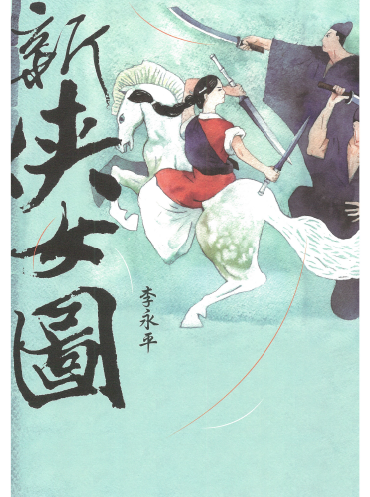Since the 1960s, many Malaysian-Chinese high school graduates have chosen to do their higher education in Taiwan so they can continue studying in Chinese (they’ve also benefitted from the Kuomintang’s Overseas Chinese Education Policy). The federation of Malaysia was formed on 16 September 1963, although it had achieved independence several years earlier in 1957.
The Malaysian-Chinese students who came to Taiwan, such as Shang Wanyun (商晚筠), Lee Yung Ping (李永平), Zhang Guixing (張貴興) and the poet Lin Lü (林綠), devoted themselves to creating literature and went on to win national prizes and publish books as well as literary criticism. The emergence of these authors and the award-winning works that they published, established Taiwan as the first domain of Malaysian-Chinese literature.
We cannot forget that first generation of scholars: Zheng Liangshu (鄭良樹), Lim Chooi Kwa (林水檺), and the poet Li Youcheng’s (李有成) Constellation Poetry Society (1964-), whose members included Chen Huihua (陳慧樺), Lin Lü, Dan Ying (淡瑩) and Wang Runhua (王潤華), among others. Or later, the group of literary friends who formed the Divine Land Poetry Society (1976-1980, Woon Swee Oan (溫瑞安), Fang E’zhen (方娥真), Huang Hunxing (黃昏星), Zhou Qingxiao (周清嘯) etc); or Pan Yutong (潘雨桐), who won the third United Daily News Book Prize in the early 1980s; or Ng Kim Chew (黃錦樹), Chen Dawei (陳大為), Zhong Yiwen (鍾怡雯) and Lin Xingqian (林幸謙) who each won major literary awards and brought their combination of creativity and research experience to Taiwan’s education system. At the same time, there were also humanities scholars such as Tee Kim Tong (張錦忠), Lin Jianguo (林建國), Wei Yueping (魏月萍) and Gao Jiaqian (高嘉謙), who wrote from a critical perspective on contemporary art, literature and historical research.
By the late 1990s and the early 2000s, when Lee Tian Poh (李天葆) and Ho Sok Fong (賀淑芳) became well-known and Li Zishu (黎紫書) rapidly rose to fame after winning both the United Daily News Book Prize and the China Times Literature Award, Malaysian-Chinese writers had already been living in Taiwan for 50 years (1967-present) and established a strong reputation.
Key examples of fiction from this era include the novels of Shang Wanyun (1952-1995), who, following her untimely death, left behind Stupid Ah-Lian and The Seven-Coloured Water Flower, as well as the unfinished works Fleas and Earthly Fireworks.
Lee Yung Ping
Lee Yung Ping (1947-2017) became famous following the publication of his story “A La-tzu Woman”, then Retribution: The Jiling Chronicles (published in Japanese by Jimbun Shoin and English by Columbia University Press) shocked the Taiwanese literary scene. More recently, his two-part novel The End of the River (part one: Flowing Upstream, part two: Mountains) and Zhu Ling’s Adventures in Wonderland (Japanese translation in progress) have portrayed the treacherous nature of Borneo’s tropical rainforest. His unfinished work, The Portrait of a Swordswoman, pays tribute to the world of Wuxia, continuing in the spirit of Tang Dynasty legends and chivalric novels.

